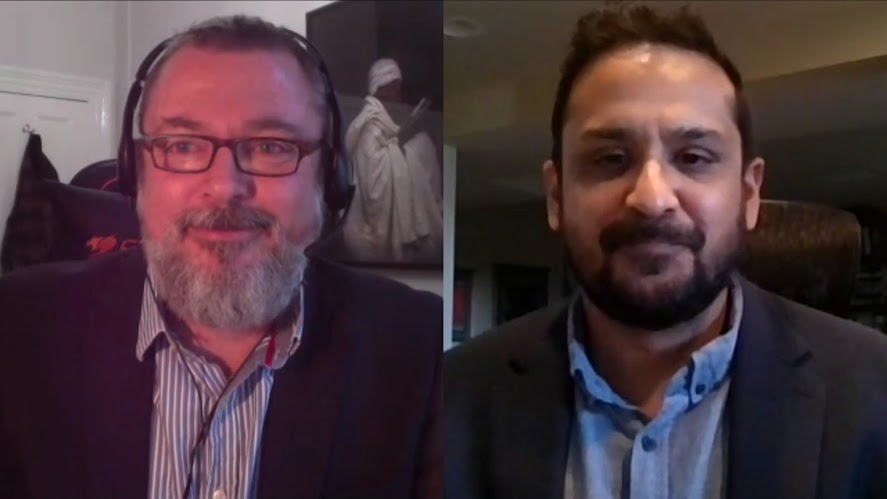 BIG DATA
BIG DATA
 BIG DATA
BIG DATA
 BIG DATA
BIG DATA
Satellites certainly aren’t cheap, and just preparing satellite data for use is prohibitively time consuming. Prohibitive of what? The kind of creative applications and use cases that more easy-to-use data make possible.
Some tech innovators have tried to change this with new, better means to store and process satellite imagery. One particular initiative is taking them up on their offerings in a big — think the continent of Africa — way.
In the past, pre-processing consumed about 80% of technologists’ time when working with satellite data, according to Aditya Agrawal (pictured, right), founder of D4DInsights LLC and senior program advisor at Digital Earth Africa. This impacted the decisions they made and the use cases to which they could apply the data. But new satellite technology — massive processing power available in cloud and distributed computing platforms — have changed this, according to Agrawal.
“What used to take weeks to do for any kind of analysis on satellite data — which is heavy data — now takes minutes or hours to do,” Agrawal said.
Digital Earth Africa is leveraging the new tech to build the world’s largest operational platform for accessing and analyzing satellite imagery of Africa. The platform is essentially a free, open, queryable store of satellite data for both government and entrepreneurial use in Africa and beyond.
Agrawal and Clive Charlton (pictured, left), head of solutions architecture, Sub-Saharan Africa, at Amazon Web Services, spoke with John Furrier, host of theCUBE, SiliconANGLE Media’s livestreaming studio, during the AWS Public Sector Summit Online event. They discussed the new possibilities opening for satellite data and the ultimate goals of Digital Earth Africa. (* Disclosure below.)
The project in Africa is based on another initiative called Digital Earth Australia. It relies on Amazon’s Elastic Kubernetes Service to spin up virtual machines to process raw satellite imagery into the Cloud Optimized GeoTIFF, or COG, format. This allows for the storing of very large volumes of data in a format that is easy to query. The data is stored in AWS S3 storage provided by the AWS Cape Town, South Africa, region opened last April. It is easy and inexpensive to access and analyze — users need not purchase storage and pay only for the compute they use, according to Charlton.
“When you share your data on AWS, you make it available to a large and growing community of developers, startups and enterprises all around the world,” Charlton said.
An important feature of the technology and the program is its scalability. Digital Earth Africa hopes to provide ongoing aid in the areas of food security, climate change, coastal resilience, land degradation, illegal mining and water supply.
There are often common features to a given problem that recur in all the countries it’s seen within, according to Agrawal. “So when we can take one particular issue and test it with additional countries, then we can scale it across the whole continent because the infrastructure is there for the whole continent.”
As Digital Earth Africa matures, Agrawal would like to see it not only aid government initiatives, but also spur growth in business and entrepreneurship.
Watch the complete video interview below, and be sure to check out more of SiliconANGLE’s and theCUBE’s coverage of the AWS Public Sector Summit Online event. (* Disclosure: TheCUBE is a paid media partner for the AWS Public Sector Summit Online event. Neither AWS, the sponsor for theCUBE’s event coverage, nor other sponsors have editorial control over content on theCUBE or SiliconANGLE.)
Support our mission to keep content open and free by engaging with theCUBE community. Join theCUBE’s Alumni Trust Network, where technology leaders connect, share intelligence and create opportunities.
Founded by tech visionaries John Furrier and Dave Vellante, SiliconANGLE Media has built a dynamic ecosystem of industry-leading digital media brands that reach 15+ million elite tech professionals. Our new proprietary theCUBE AI Video Cloud is breaking ground in audience interaction, leveraging theCUBEai.com neural network to help technology companies make data-driven decisions and stay at the forefront of industry conversations.